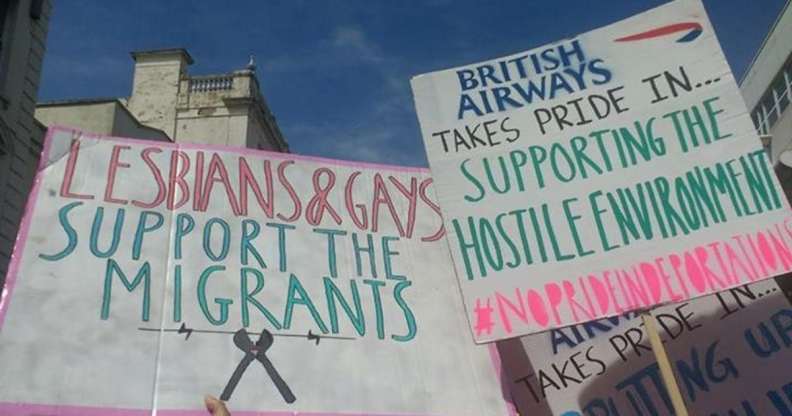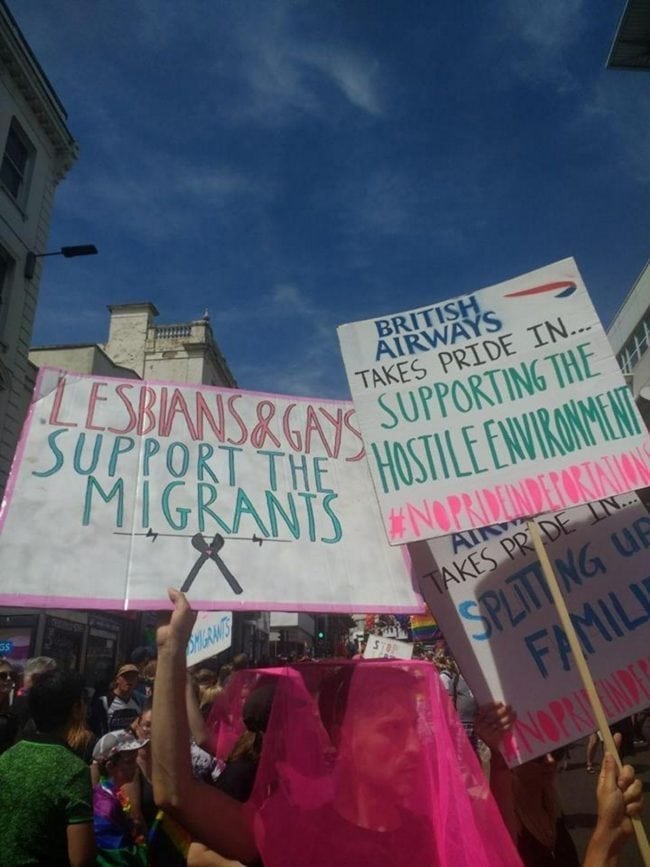Afghan teenager denied asylum in Austria because he doesn’t ‘act or dress’ gay

Around three-quarters of asylum claims made at least partly on the basis of sexual orientation have been rejected (Lesbians and Gays Support the Migrants)
A gay teenager from Afghanistan has been rejected for asylum in Austria after officials said he did not “walk, act or dress” like a gay man, according to reports.
The 18-year-old Afghan, who wanted to escape his country where homosexuality is illegal, was found to have no grounds for fear of persecution, the Falter newspaper reported.
“The way you walk, act or dress does not show even in the slightest that you could be homosexual,” the official in charge of asylum reportedly wrote in his assessment.
The report also allegedly said the man couldn’t be homosexual because he liked spending time alone or with small groups of people. “Aren’t homosexuals rather social?” the official questioned in his report.
According to the local news, the authority also found “potential for aggression” which “wouldn’t be expected from a homosexual”, because the teenager reportedly fought with others in the accommodation where he was being temporarily housed.
The official also rejected a statement that the Afghan teenager had kissed straight men and said he would have been beaten if he had done so, according to the Falter.
The teenager, who came to Austria alone as a minor, was also criticised for saying he became aware of his sexuality from the age of 12 years old.
The caseworker said that was “rather early” and not particularly likely in a society such as Afghanistan.
The Afghan is appealing against the decision, the Falter reported.
Austria’s interior ministry said on Wednesday it could not comment on the specific case, but it was “not reflective of the [wider] reality”. About 120,000 asylum claims had been decided on over the past two years, it said.
“Asylum seekers must substantiate their reasons for fleeing. There are no concrete rules of proof, but the authorities must show if and why a claim was found to have been substantiated,” the ministry said in a statement, adding that “individual impressions” were significant in the interview process.
It said it was working with the UN refugee agency to offer further training on LGBT issues to “ensure quality” in the asylum evaluation process.
In 2017 gay Afghans who were being deported by the British government were told that they should “pretend to be straight”.

Around three-quarters of asylum claims made at least partly on the basis of sexual orientation have been rejected (Lesbians and Gays Support the Migrants)
At the time, Heather Barr, a senior researcher at Human Rights Watch, said: “The Home Office’s approach seems to be to tell asylum seekers, ‘Pretend you’re straight, move to Kabul and best of luck,’”
“Living a life where you are forced to lie every day about a key part of your identity, and live in constant fear of being found out and harassed, prosecuted or attacked, is exactly the kind of persecution asylum laws are supposed to prevent.”
While Paul Twocock, then-director of campaigns, policy and research at Stonewall, called the document “unacceptable” and called for a governmental “change” in dealing with LGBT asylum seekers.
He said: “They openly acknowledge that LGBT people are at risk, but also state that they can escape persecution if they are careful not to attract attention by hiding who they are. This is unacceptable and leaves LGBT people in danger. We strongly urge the government to change its approach.”

